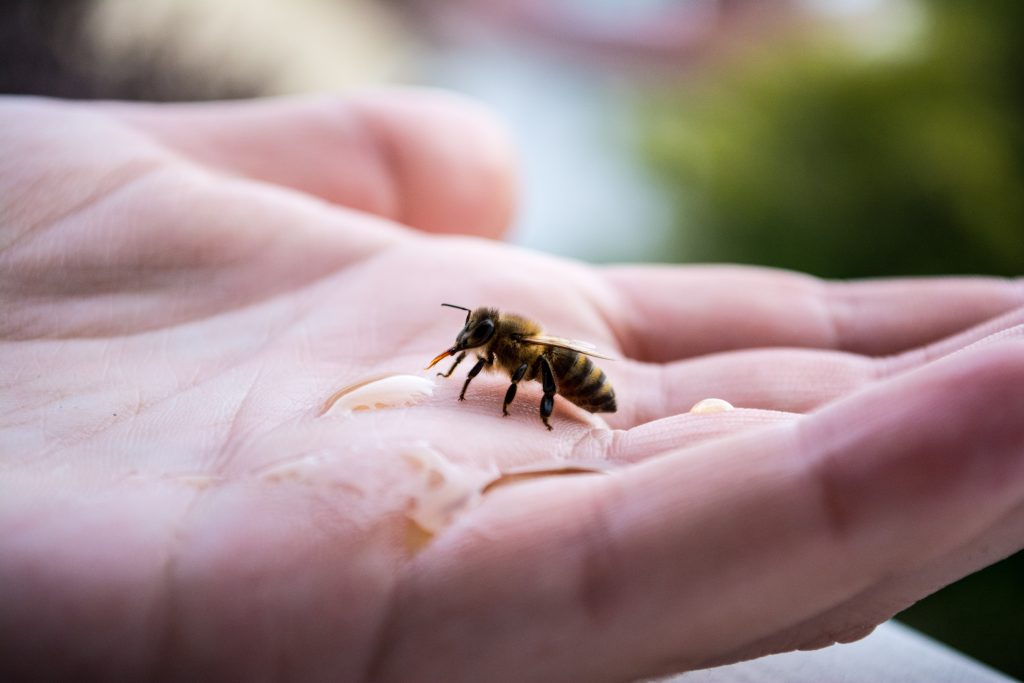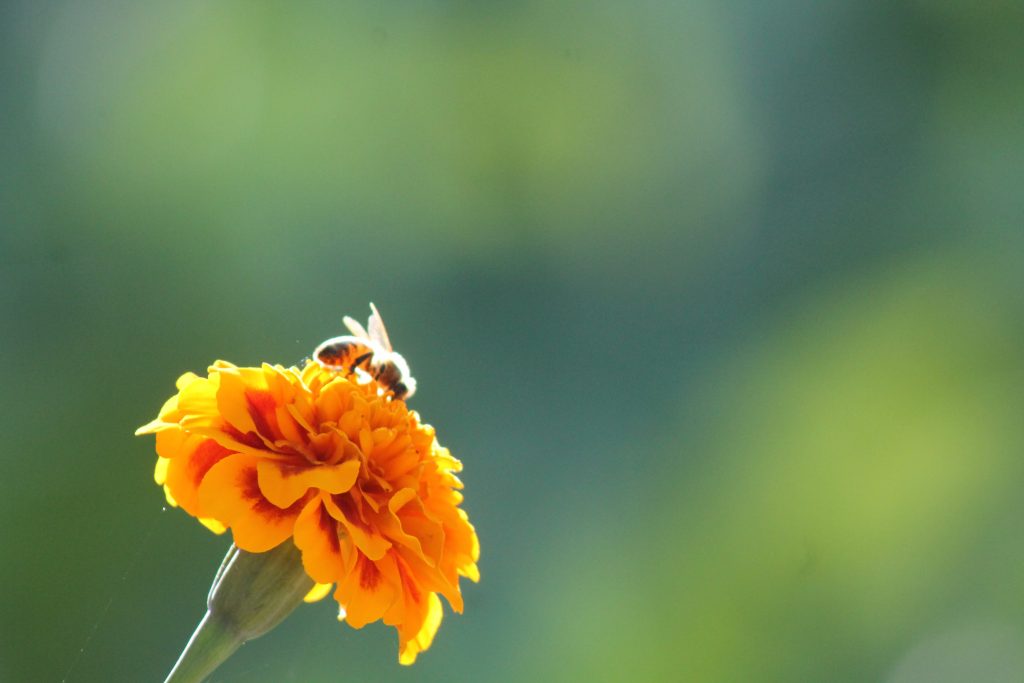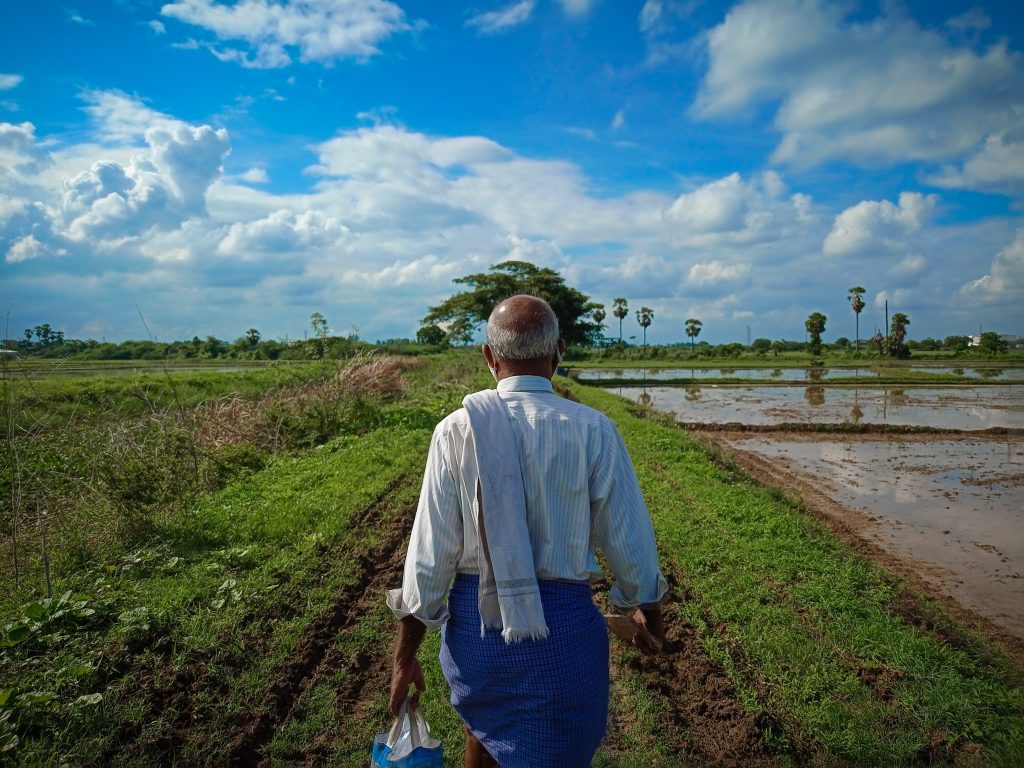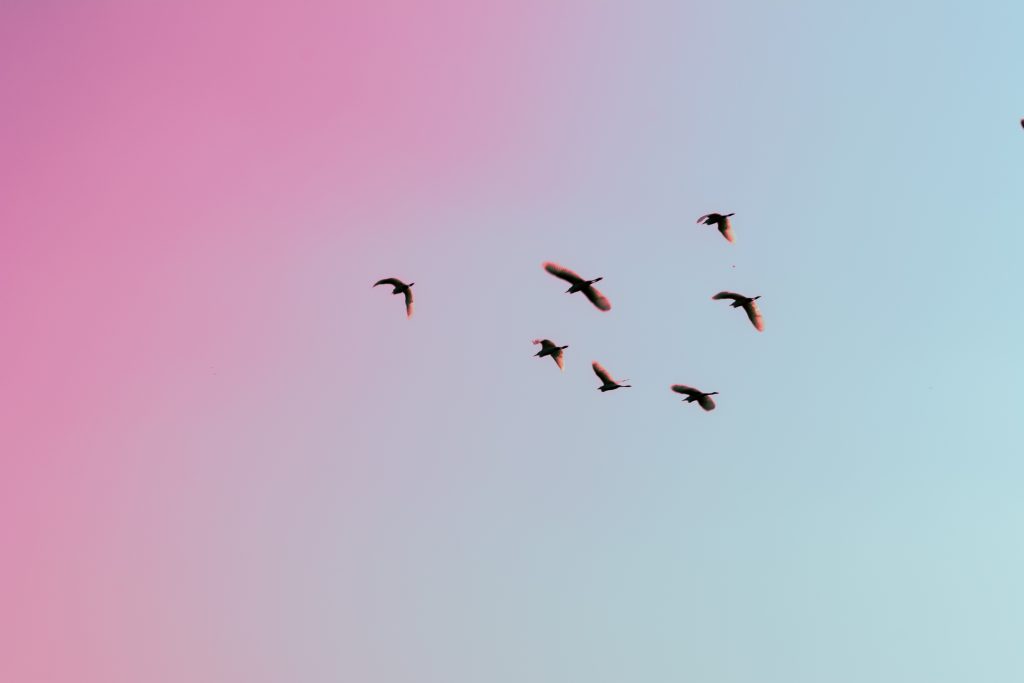In a last decade, winter oilseed rape has changed the early summer forage of honeybees as large part of honey is now produced from these fields. There are beekeepers and honey users who are happy about this, while there are others who would like to avoid it. Therefore, early planning of hive positioning to optimise the forage area is vital for the production quality. As part of the EFFECT project, and in collaboration with the Estonian Land Board and their Satellite Hub subservice, a prediction map of winter oilseed rape fields was created in 2023 using the satellite images provided by Sentinel-2 (Copernicus). The map is available as a public GIS-tool in the X-GIS server of the Estonian Land Board (HoneyGis as ‘MesiGIS’-link and instructions are available here). The derivate layer has been tested in the field during autumn 2022.
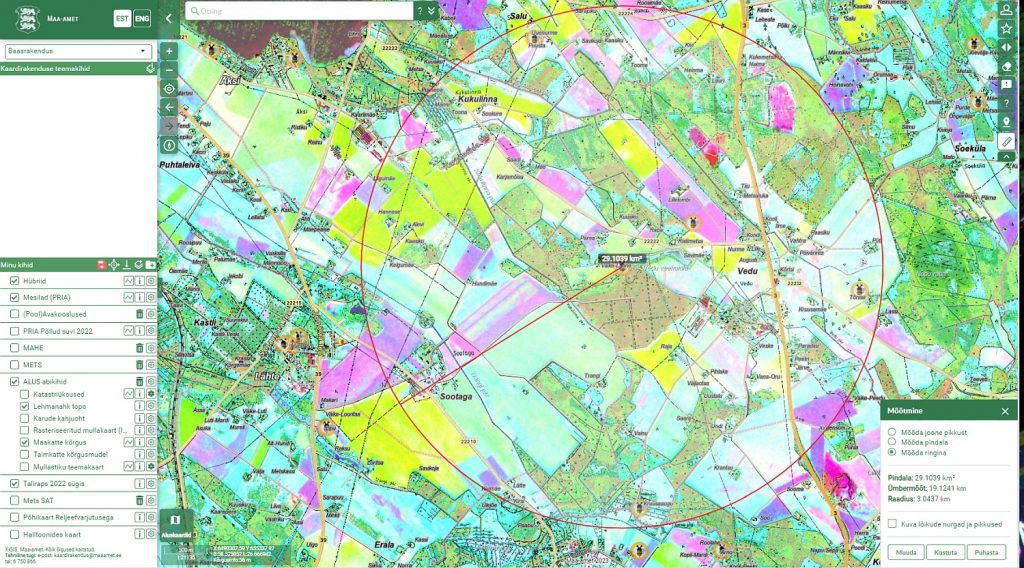
The GIS-tool is not just a one-layer solution, instead it contains many information layers useful for beekeepers. To increase the efficiency of forage planning and hive positioning, there are map layers about crops and organic farming from the last year (from the Agricultural Registers and Information Board), layers of semi-natural habitats and bogs (the EELIS database of Estonian Environmental Agency), forest database and management documentation (the Estonian Forest Registry), as well as the latest information about land cover and its changes such as recent clear-cuts (vegetation cover from LiDAR data of Land Board and Sentinel-2 data from Satellite hub). The map warning beekeepers about bears’ activity has also been added, the map we created from the monitoring data of Estonian Environmental Agency and bear damage reports from the Agricultural Registers and Information Board.
For more information, please contact Jaan Liira (University of Tartu).
